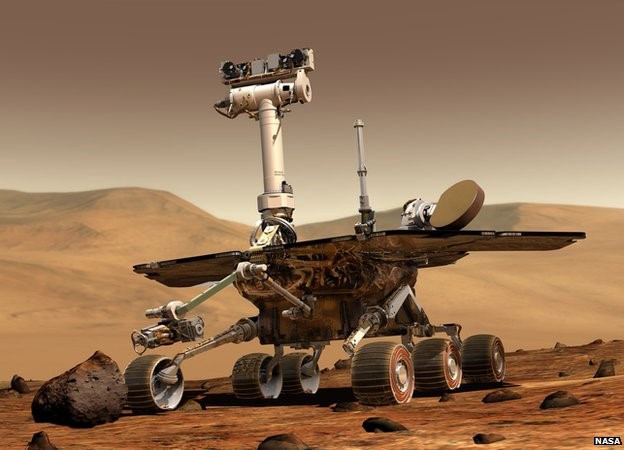
NASA’s Opportunity rover may finally meet its demises two weeks before it celebrates its 11-year anniversary. The six-wheeled vehicle’s mission on Mars, which was originally scheduled to last a mere 90 days, extended to over a decade. But now, an age-related fault affecting its flash memory may finally put this old veteran to rest.
John Callas, Opportunity’s project manager at NASA, poetically sums up the elder robot’s condition by stating “it forgets.” He also explains that his team may have found a way to hack the rover’s software to disregard the faulty components and continue trudging onward.
Like all contemporary computers, Opportunity has both volatile and non-volatile memory. Its volatile memory is comparable to that of a PC’s RAM (random access memory), meaning, it’s quick and robust, capable of storing a great deal of data so long as a steady power supply is provided. By contrast, non-volatile memory can maintain data even when powered down; its ideal for retaining machine settings and other lower-level functions.
The central issue concerning Opportunity is that its non-volatile memory is unable to save telemetry data, thus forcing the data to be written onto its volatile memory; as a result, the information gets wiped whenever the rover powers down.
“So now we're having these events we call 'amnesia,',” explained Mr. Callas in Discovery News. “Which is the rover trying to use the flash memory, but it wasn't able to, so instead it uses the RAM… it stores telemetry data in that volatile memory, but when the rover goes to sleep and wakes up again, all [the data] is gone. So that's why we call it amnesia – it forgets what it has done.”
What’s more, the problems are compounding, causing the rover to reset itself, and in some instances, lose communication with mission control altogether. NASA hopes to resolve the issue as soon as possible, but the process of “hacking” the machine to permanently write data onto healthy hardware in place of flash memory may take a few weeks to execute and there’s no telling if Opportunity will die in the meantime. While NASA hasn’t explicitly mentioned what it meant by the term “hacking,” we can assume its referring to some sort of long distance machine language override.
Callas adds, “It’s like you have an aging parent that is otherwise in good health – maybe they go for a little jog every day, play tennis each day – but you never know, they could have a massive stroke right in the middle of the night.” Eerily enough, the aging robot’s condition parallels that of an elderly patient struggling with Alzheimer’s.
Assuming Opportunity finally retires, it’ll have long paid itself off through the vital data it acquired over the course of 26 miles in 10 years and 9 months.
Source: BBC
Advertisement
Learn more about Electronic Products Magazine





